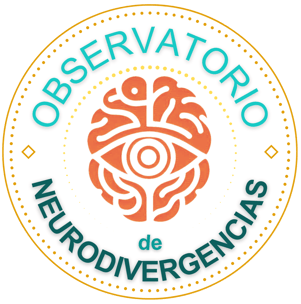Dedicated to the study, understanding and care of neurological variations
Through in-depth, multidisciplinary analysis, we seek to better understand the strengths, challenges, and specific needs of neurodivergent individuals.


®
The Observatory of Neurodivergences (ON) is an innovative instance to advance our understanding and support of neurodiversity.
Feasibility:
Growing Recognition: The concept of neurodiversity is gaining increasing recognition within the scientific, educational, and social spheres. This creates a foundation of interest and potential support for such an organization.
Interdisciplinary Nature: Neuroscience inherently intersects with psychology, education, sociology, and even technology. An observatory could serve as a crucial interdisciplinary hub.
Data Collection and Analysis: Neuroscience research generates vast amounts of data. An observatory could play a vital role in collecting, curating, and analyzing this data specifically through the lens of neurodiversity.
Technological Advances: Advances in neuroimaging, genetic analysis, and digital tools provide opportunities for sophisticated observation and understanding of neurodivergent conditions.
Need for a Centralized Resource: Currently, information and research on neurodiversity are often scattered across various institutions and disciplines. An observatory could provide a much-needed centralized resource.
Objectives:
Data Aggregation and Analysis: To systematically collect and analyze data related to the neurological underpinnings, prevalence, characteristics, and lived experiences of various neurodivergences (e.g., autism, ADHD, dyslexia, dyspraxia, Tourette syndrome, etc.).
Research Promotion and Coordination: To foster and coordinate interdisciplinary research efforts aimed at understanding neurodiversity, identifying the strengths and challenges associated with different neurotypes, and exploring effective support strategies.
Knowledge Dissemination: To serve as a central hub for evidence-based information on neurodiversity, making it accessible to researchers, educators, policymakers, people with neurodivergences, their families, and the general public.
Identification of Best Practices: Identify, evaluate, and disseminate best practices in education, healthcare, employment, and social inclusion for neurodivergent people.
Policy Advocacy: Inform and advocate for policies that promote the rights, inclusion, and well-being of neurodivergent people based on scientific evidence and lived experiences.
Awareness and Public Education: Increase public awareness of neurodiversity, challenge misconceptions and stigma, and promote understanding and acceptance of neurological differences.
International Collaboration: Foster collaboration and knowledge exchange with research centers and international organizations focused on neurodiversity.
Development of Diagnostic and Assessment Tools: Contribute to the development and validation of more nuanced, neurodiversity-affirming diagnostic and assessment tools.
Mission:
To advance the understanding, acceptance, and inclusion of neurodiversity through rigorous scientific observation, interdisciplinary collaboration, and the dissemination of evidence-based knowledge to empower neurodivergent people and create a more equitable society.
Vision:
A world where neurodiversity is recognized and celebrated as a valuable aspect of human variation, where neurodivergent people are understood, supported, and empowered to thrive, and where social structures are inclusive of all neurological profiles.
Philosophy:
The Observatory of Neurodivergences (ON) is based on the neurodiversity paradigm, which posits that neurological differences are natural variations within the human population rather than deficits or disorders that must be cured. Its core philosophical principles are:
Respect for Neurological Variation: Recognizes and values the diverse ways in which human brains function.
Strengths-Based Approach: Focuses on the unique strengths and talents often associated with different neurotypes, along with acknowledging their challenges.
Person-Centered Perspective: Prioritizes the lived experiences and perspectives of neurodivergent people in research, policy, and practice.
Social Model of Disability: Understands that societal barriers and lack of accommodations often contribute to the challenges neurodivergent people face.
Inclusivity and Equity: Strive for a society that is inclusive and equitable for all neurological profiles, ensuring equal opportunities and access.
Evidence-Based Practice: Bases its activities and recommendations on rigorous scientific research and data.
Importance:
The Observatory of Neurodivergences (ON) is of utmost importance for several reasons:
Improved Understanding: It significantly improves our scientific understanding of the complexities of neurodiversity, moving beyond deficit-based models.
Improved Support and Intervention: By identifying effective strategies and best practices, it contributes to the development of more personalized and supportive educational, therapeutic, and employment interventions.
Reduction of Stigma and Discrimination: Increased public awareness and evidence-based information can help reduce the stigma and discrimination faced by neurodivergent people.
Empowerment of Neurodivergent People: Providing a central resource, and advocating for their rights, can empower neurodivergent people and their families.
Social Benefit: Recognizing and leveraging the unique talents and perspectives of neurodivergent people can foster innovation, creativity, and a more diverse and resilient society.
Informed Policymaking: The observatory's evidence-based research informs the development of more effective and inclusive policies at the local, national, and international levels.
In conclusion, the Observatory of Neurodivergences (ON) is a crucial step toward a more nuanced, accepting, and supportive understanding of human neurological diversity. It has the potential to be a transformative force in the fields of neuroscience, education, social policy, and the lives of neurodivergent people worldwide.


Neurodivergences: Research, understanding and treatment.
"
Observatory of Neurodivergences: Revealing strengths, breaking down barriers
Articles
Nelly Montoya
CEO & Founder
"As a neuroscience and educational specialist, I recognize that innovative therapies for neurodivergences are not just about alleviating challenges; they represent a crucial investment in unlocking the unique potential and fostering the full participation of every neurotype within our society."


info@wellnessinlearning.com
The name Wellness in Learning® and NeuroNeural®, the logos, and slogans constitute industrial property and are or may be in the process of being registered with the relevant authorities. Therefore, any unauthorized reproduction of these by any means is prohibited.
© Wellness in Learning 2025. All rights reserved.


